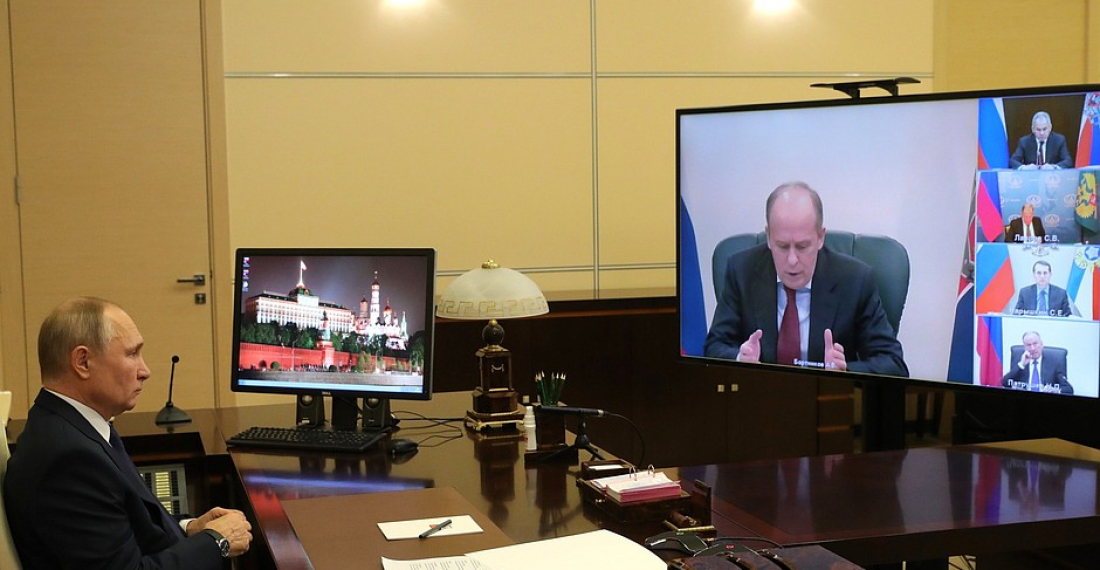Russian president Vladimir Putin on Sunday (10 January) held a meeting in virtual mode of Russia's National Security Council to discuss the Karabakh issue, ahead of a meeting tomorrow with the leaders of Armenia and Azerbaijan.
According to a statement on the Kremlin's website, the meeting was attended by the Secretary of the Security Council Nikolai Patrushev, Minister of Foreign Affairs Sergei Lavrov, Minister of Defense Sergei Shoigu, Director of the Federal Security Service Alexander Bortnikov, and the Director of the Foreign Intelligence Service Sergei Naryshkin.
Putin on Monday is expected to host Armenian prime minister Nikol Pashinyan and Azerbaijani president Ilham Aliyev to discuss the implementation of the 10 November agreement which brought an end to the Karabakh War. A number of issues resulting from that agreement remain very contentious, and are seen as creating difficulties for the sustainment of the agreement.
In a message on her facebook page, Mane Gevorgyan, spokesperson for the Armenian prime minister clarified the issues planned to be discussed in the Monday meeting.
"I would like to note that, according to the preliminary planned agenda, the trilateral meeting is of an economic nature, which refers to the opening of regional communications, the implementation of international transport, including from Armenia to Russia, Iran, as well as from the central parts of Armenia along the Nakhchivan railway to the Syunik province," she added.
"The Azerbaijani side and some Armenian circles are constantly circulating the topic of the so-called "Meghri Corridor", but as it has been mentioned many times, the trilateral statement of November 9 does not contain any provision on creating a corridor through Meghri or Armenia.
For the Armenian side, however, the issue of the return of the captives, the search and rescue operations of our soldiers left behind, the search for the bodies of the victims, and the fate of the missing are crucial. Without resolving these issues or making significant progress, it will be extremely difficult to effectively discuss the economic agenda, and the Armenian side considers the discussion of this issue one of the key topics of the Moscow meeting.
I would also like to emphasize that in Moscow it is not planned to sign any document on the settlement of the Karabakh issue or any territorial issue. "If it is possible to reach an agreement on the issues on the agenda, i.e.economic issues, the exchange of prisoners, the issue of missing persons, it is possible to sign a joint statement on the results of the meeting"






